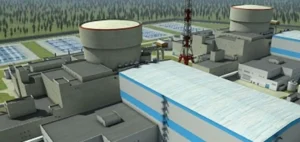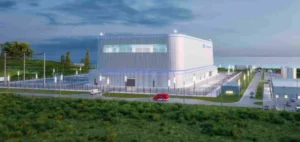EDF, which has decided to preventively repair a series of nuclear reactors exposed to corrosion risks, is maintaining its planned production range for 2023, with the aim of preserving the upcoming winter of 2023-24, said the deputy director of its nuclear production division (DPN).
“The objective for us is to anticipate the work in 2023 to preserve the winter 2023-24″ and those three months from December to February, which remain the most sensitive of the year in terms of the country’s electrical needs, Régis Clément explained to the press.
Rather than checking them one by one, the group intends to proceed by the end of 2023 with the systematic treatment of its 16 most recent reactors which, because of the geometry of their piping, are highly exposed to this risk of corrosion detected last year, EDF announced last week to the Nuclear Safety Authority (ASN).
To date, ten are already repaired or in the process of being repaired, and six will be repaired in 2023. According to Mr. Clément, this option allows “a tremendous saving (in time)” by avoiding the filing of successive regulatory applications, by proceeding with identical pipe replacement work, similar from one site to another.
EDF also has “better visibility” on the situation of its older 900 MW reactors, “little or not affected”, he added. As a result, “we are maintaining our expected production range of 300-330 TWh in 2023″, he added, without saying, however, whether the probability is on the high or low end of the range.
By comparison, 2022 generation is expected to reach a record low of between 275 and 285 terawatt-hours (TWh), due to these corrosion problems, as well as a backlogged maintenance schedule since Covid-19. On Tuesday 16 reactors remained shut down out of 56.
The high voltage network manager, RTE, has however delivered reassuring forecasts for January’s supply, thanks to consumers’ efforts to be more sober and also to the restarting of several nuclear reactors since November.






















